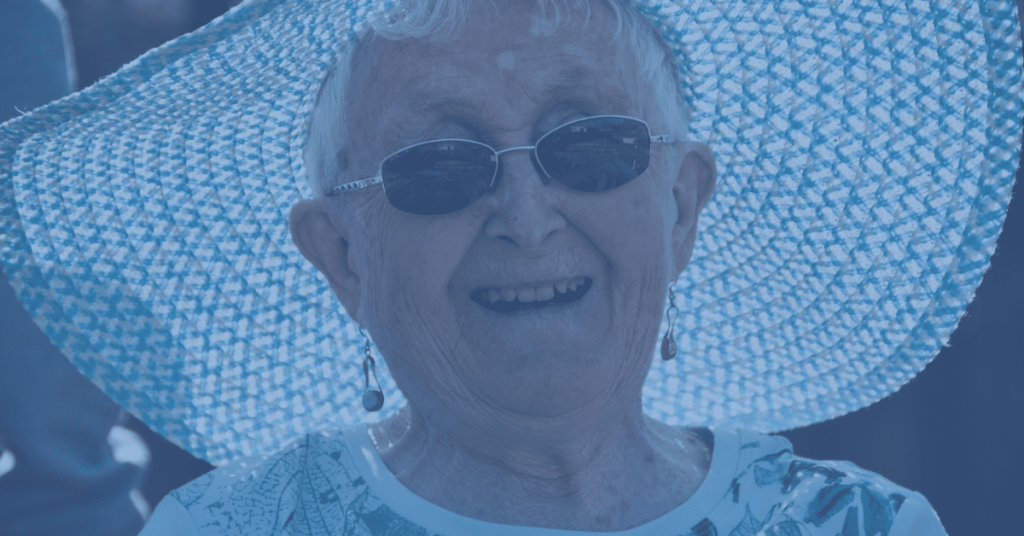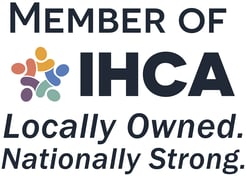Wrinkles. Crow’s feet. Sun spots. Dark circles. Every part of our body shows signs of aging in its own time, but for many of us, our skin is one of the first things to show the physical aging process. Beyond just the physical signs of skin damage, it’s so important that we take care of our aging skin in order to prevent skin cancer, infected cuts, and other skin problems that occur more easily as we age. For a senior or even a middle-aged adult who is concerned about their skin, what can you do to prevent skin damage and slow damage that has already happened? Check out our guide on Senior Skin Care: 5 Tips for Aging Skin below, and remember to speak with a medical professional if you notice any unusual changes in your skin!
Readers Also Read: 7 Tips for Caregivers: A Guide to Senior Nutrition
Use sunscreen daily.
It’s good to avoid too much sun exposure, but did you know that you can get sunburns and skin damage even when it’s cloudy? To protect your skin as you age, it’s a good idea to wear sunscreen daily. At least SPF 15 will help to protect you from the sun’s harmful rays.
Quick Tip: Many moisturizers include sunscreen, so check your labels!
Moisturize, but stick to light scents.
As we age, our skin becomes thinner and more sensitive, which often makes it itchier and more prone to cuts and injuries. How can you keep your skin in the best shape possible? Use an unscented or lightly scented moisturizer regularly! Make sure you focus especially on your elbows, lower legs, and lower arms where dry skin most often develops first (National Institute on Aging).
Quick Tip: Moisturize after showering or washing your hands! It’s a good way to keep the moisture in your skin.
Drink plenty of water.
Water is good for nearly every aspect of your health, including your skin! When you drink lots of water, it helps to keep your skin firm and moisturized. It also prevents dry and itchy skin, which can lead to easy cuts and bruising for seniors. Drink several glasses of water every day, or drink tea and eat foods with high water content!
Quick Tip: Many fruits, vegetables, and soups have high water content that can help you if you’re not feeling thirsty. Need more help with nutrition? Check out Senior Solutions Nutrition Services here.
Wear protective clothing and gear.
Protective apparel can stop skin damage and prevent further damage for many seniors! Here are some of the best pieces of protective clothing and gear for different activities of daily living:
- Sunhats and ball caps keep the sun off of your scalp and face when you spend time outside.
- Loose long sleeves and pants can keep you cool at the beach but also protect you from sun exposure.
- Gloves protect your hands and arms when you are doing activities that involve harsh chemicals that dry and damage your skin. Wear gloves when doing the dishes and cleaning the house!
Quick Tip: Gloves can also help to prevent cuts and injuries when doing outdoor activities like gardening (American Academy of Dermatology).
Pay attention to changes in skin, moles, and birthmarks.
Many skin problems are only cosmetic, but it’s absolutely crucial that you pay attention to skin changes that could indicate something more serious! Do you have a birthmark or mole that has gotten darker or larger? Is there a new mark on your skin that wasn’t there before? Are you experiencing a skin infection or rash? Talk to your doctor immediately, in order to prevent or slow the spread of a more serious skin condition like melanoma or other cancers!
Quick Tip: The ABCDE Method is a great way to determine if you have the symptoms of melanoma. Check out the full guide here!
Conclusion:
Skin care may seem superficial to some, but especially as we age, it’s so important that we take care of our skin to prevent deadly diseases like skin cancer. Taking care of your skin can be as simple as adding a couple of steps to your morning routine, so why not give it a try? No matter what stage of aging you find your skin in now, taking these 5 steps will help to keep you healthy and your skin glowing.
Liked what you read? Check out our blog for other tips, designed specifically for seniors and their caregivers!
- Public Health in the Age of COVID - September 15, 2021
- World Elder Abuse Day June 15, 2021 - June 28, 2021
- World Elder Abuse Day - June 15, 2021



